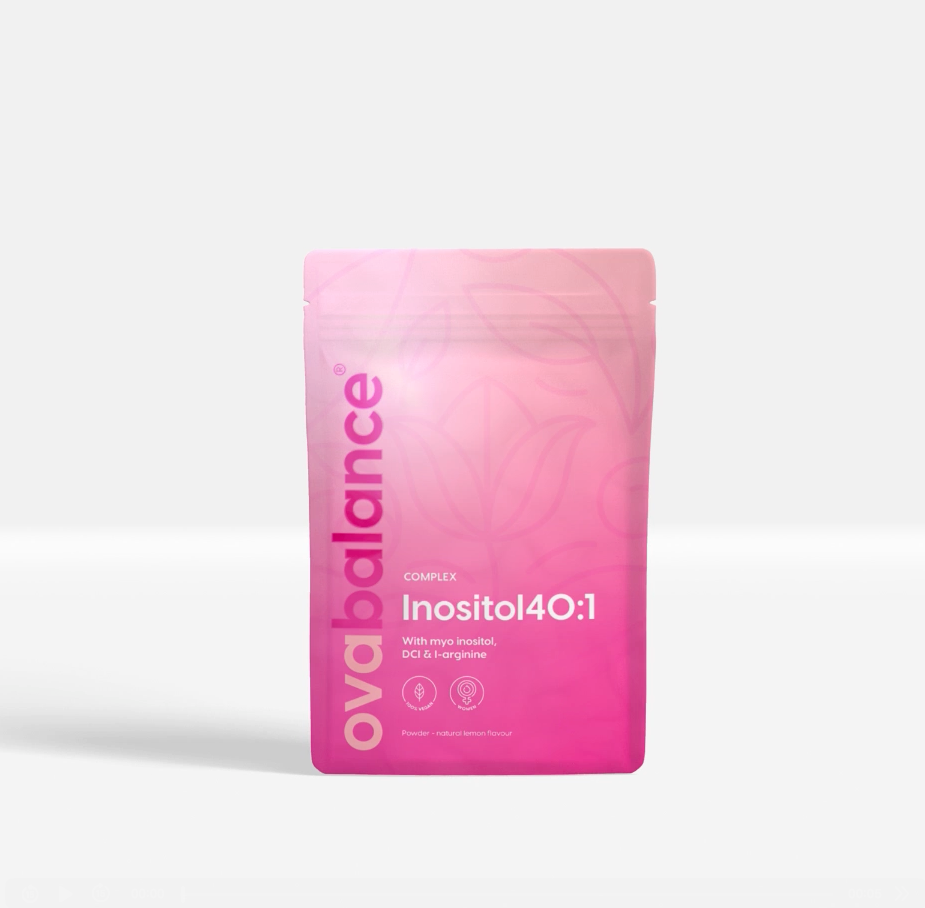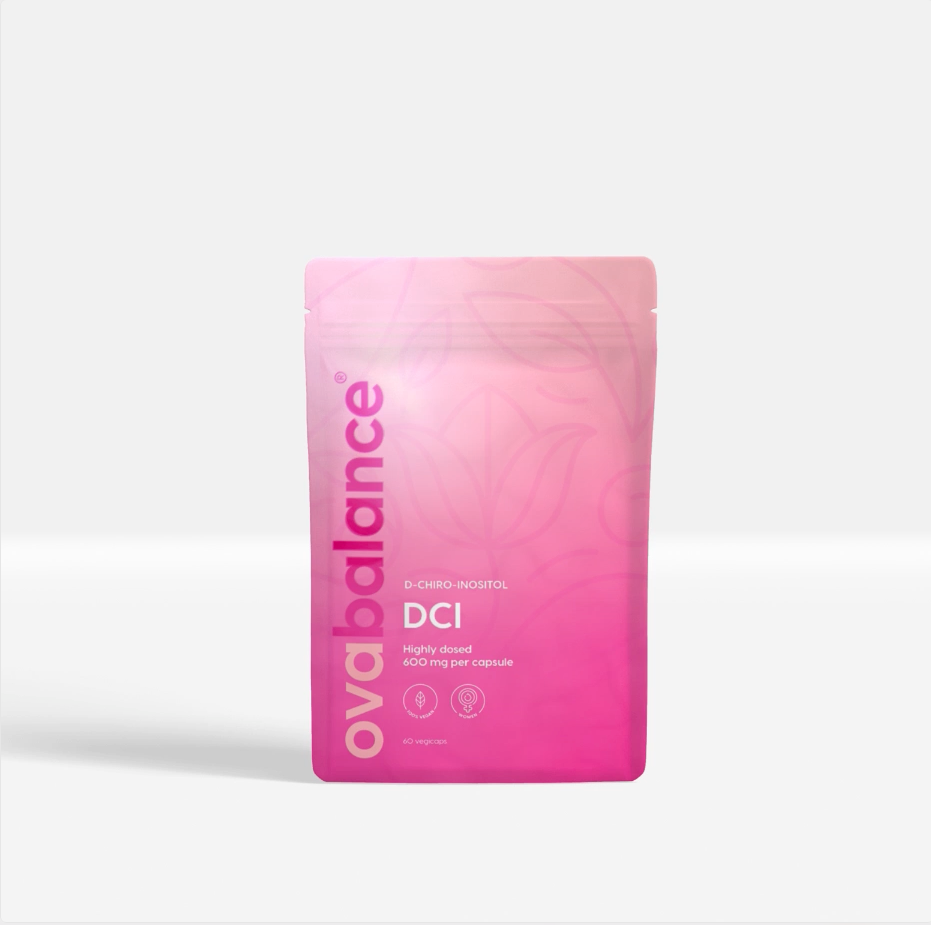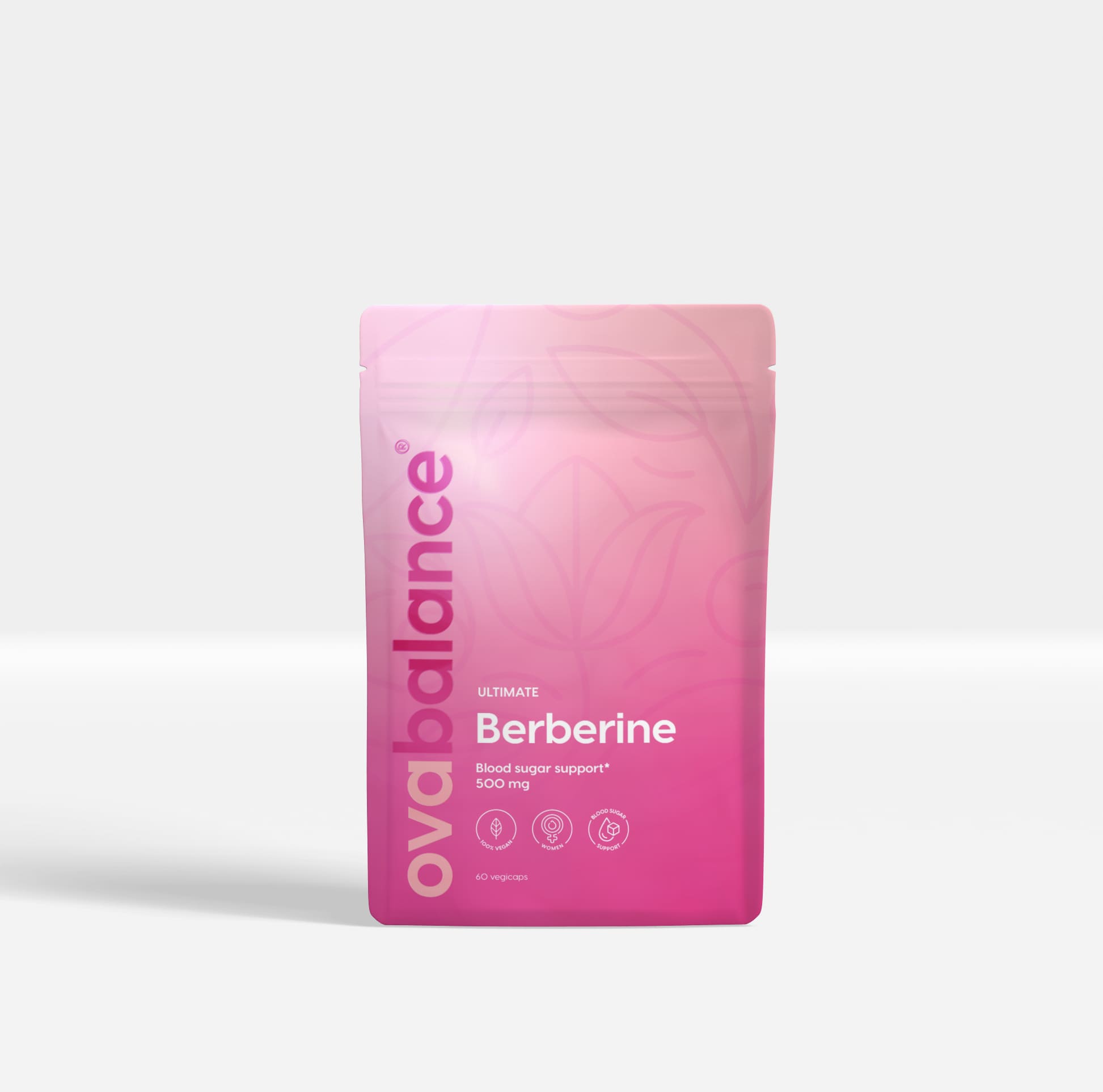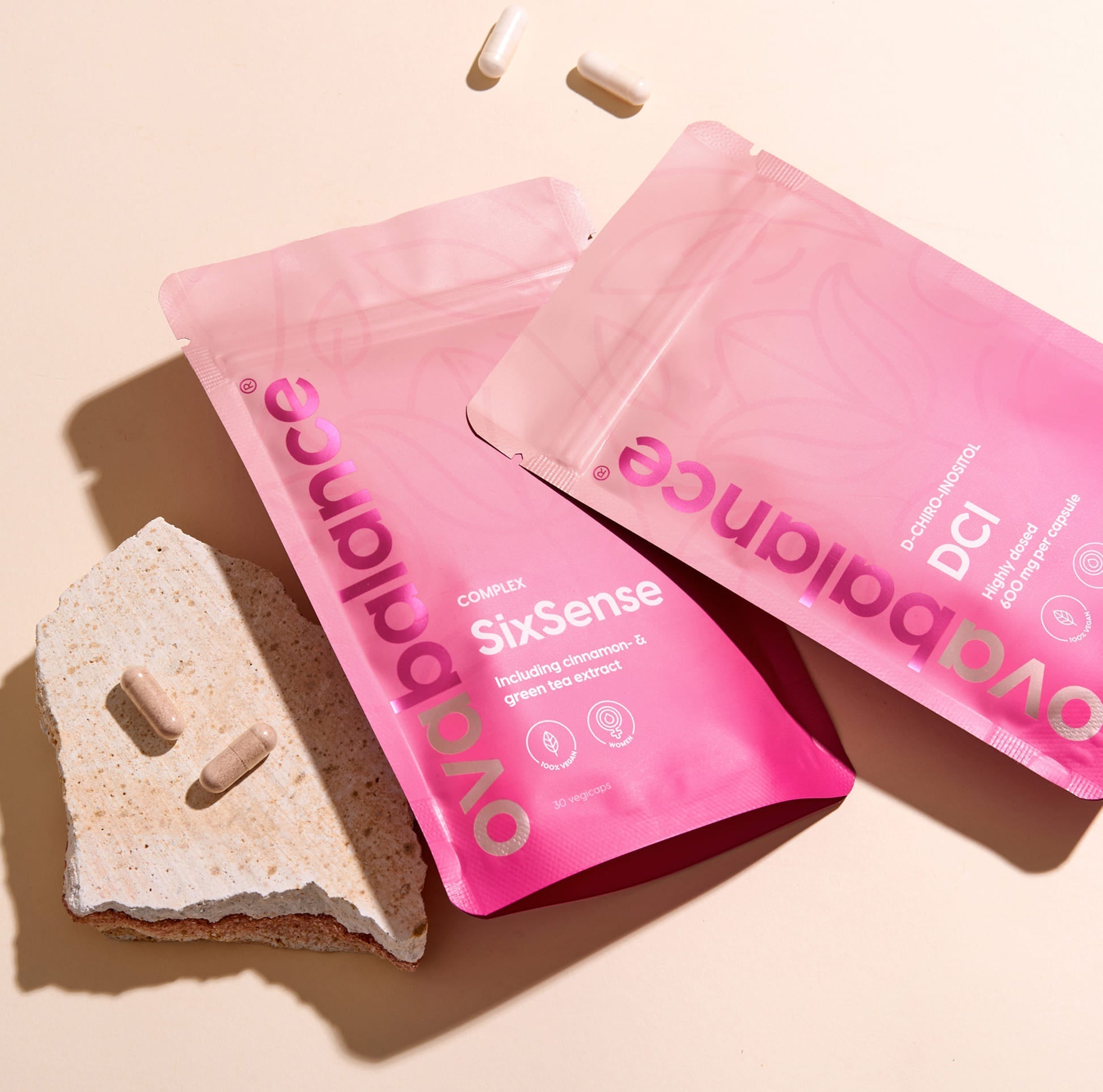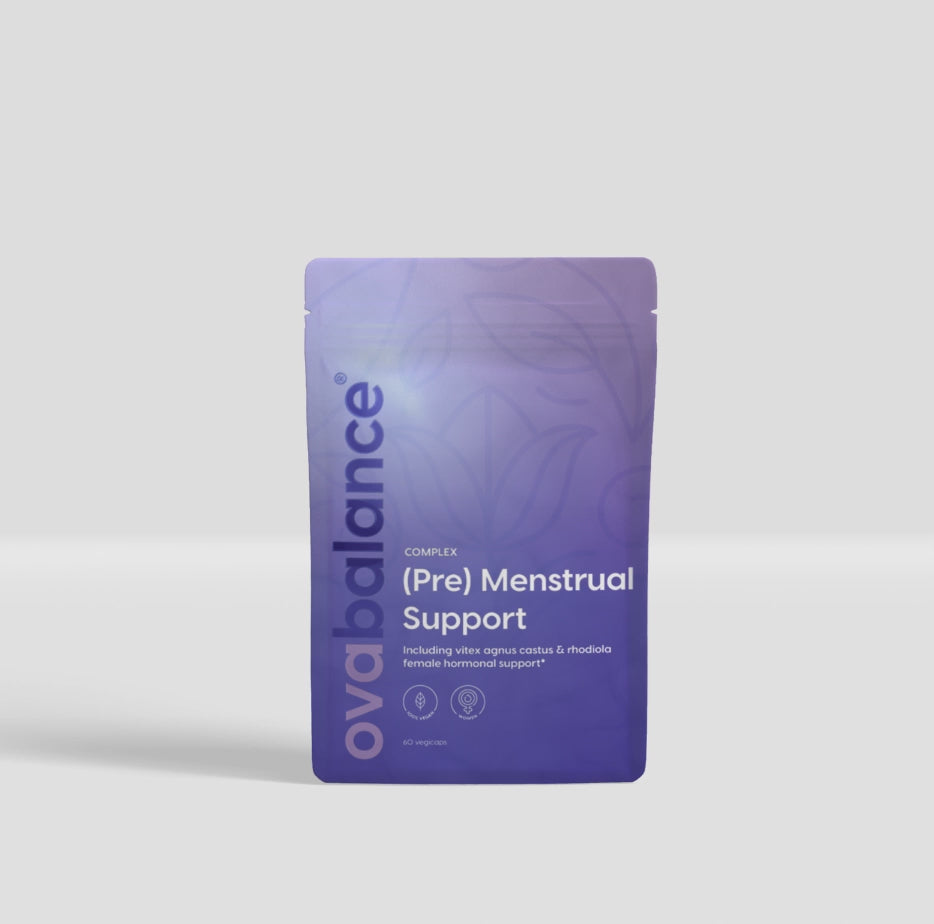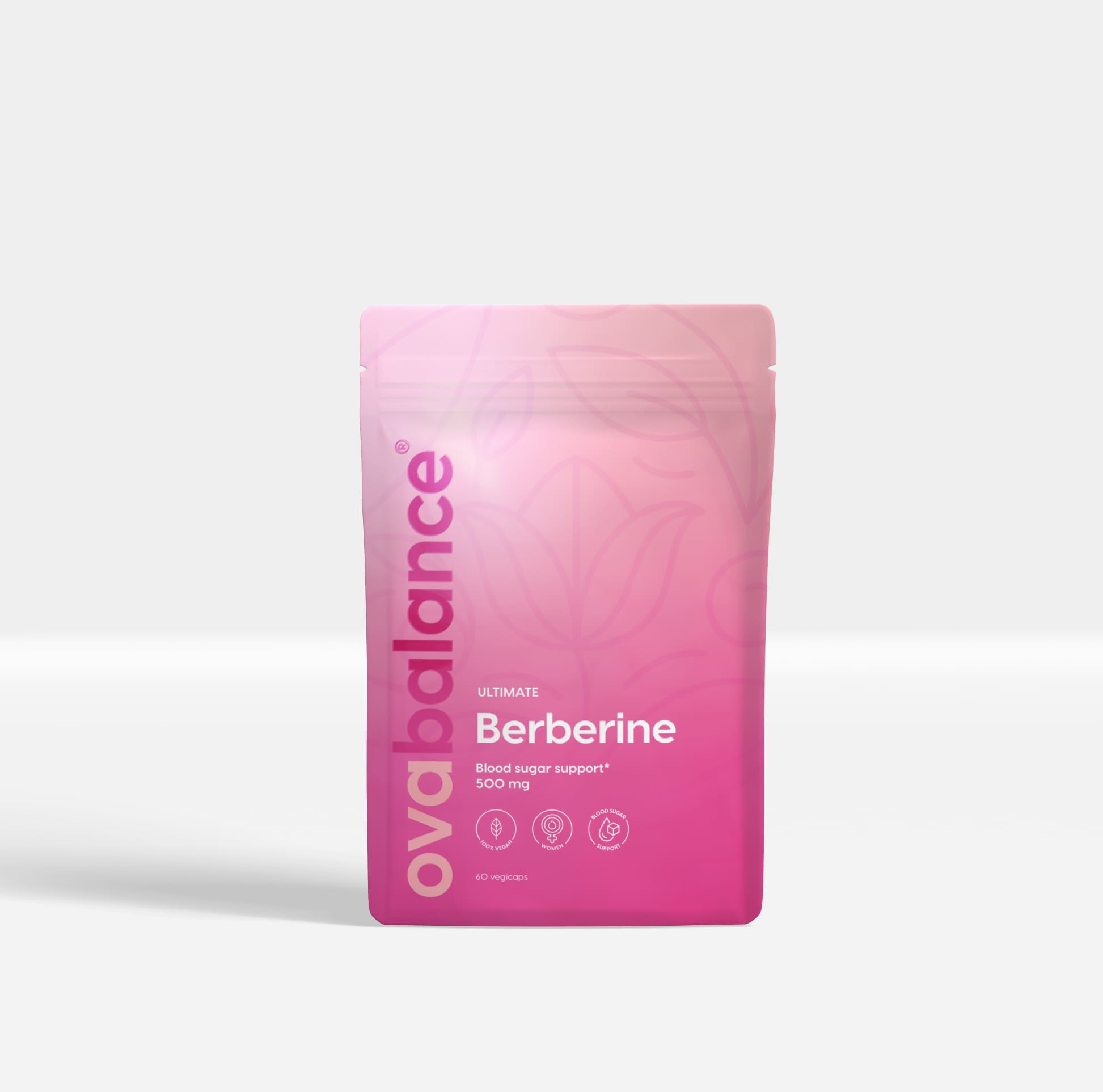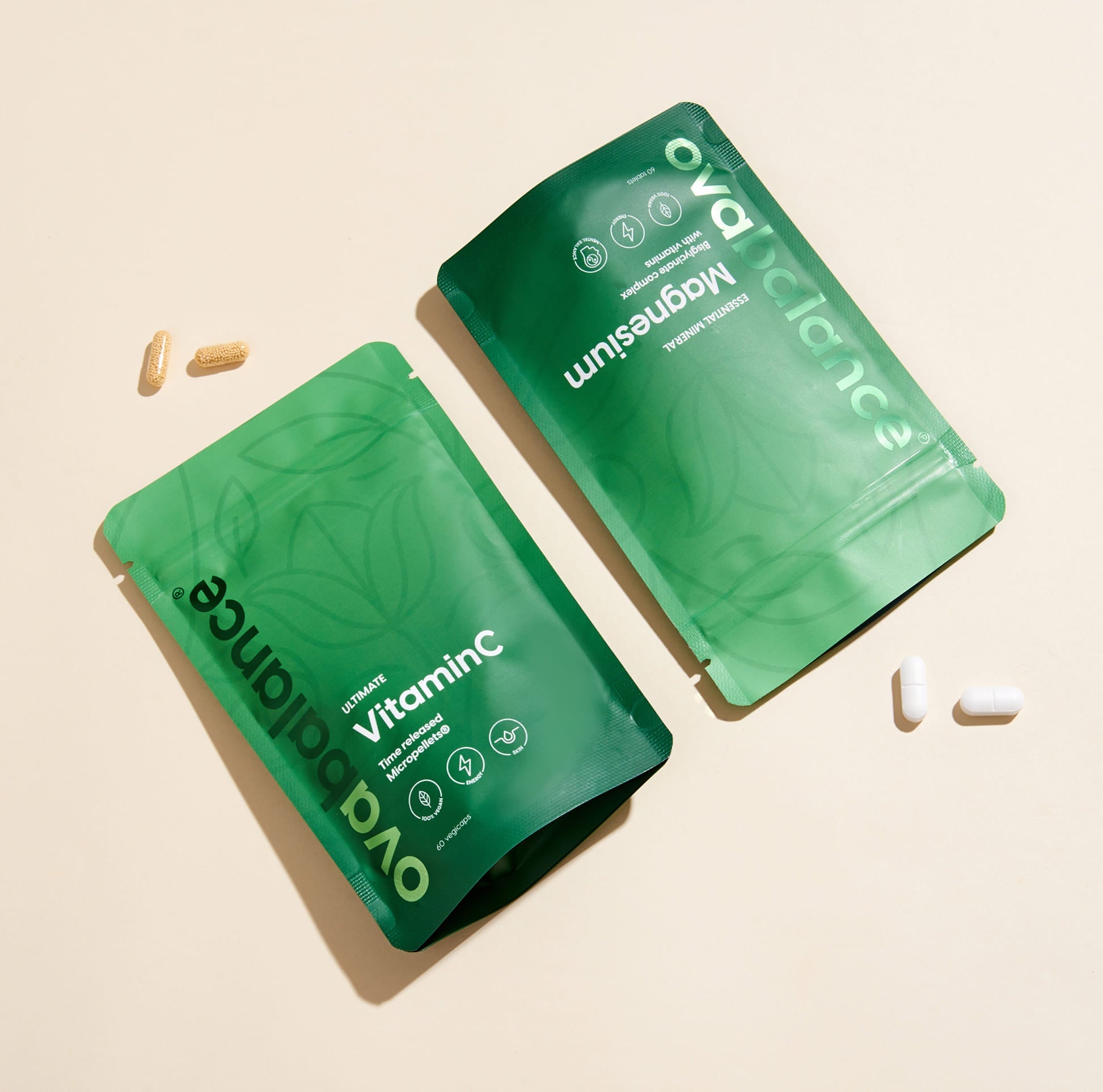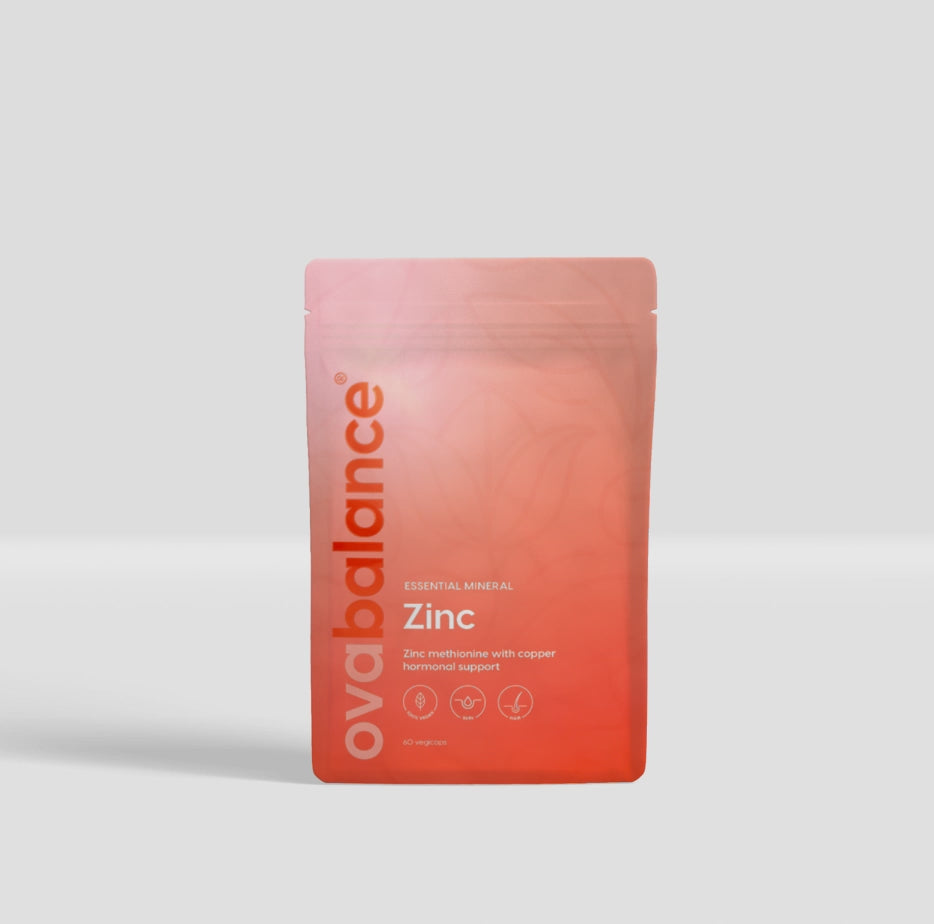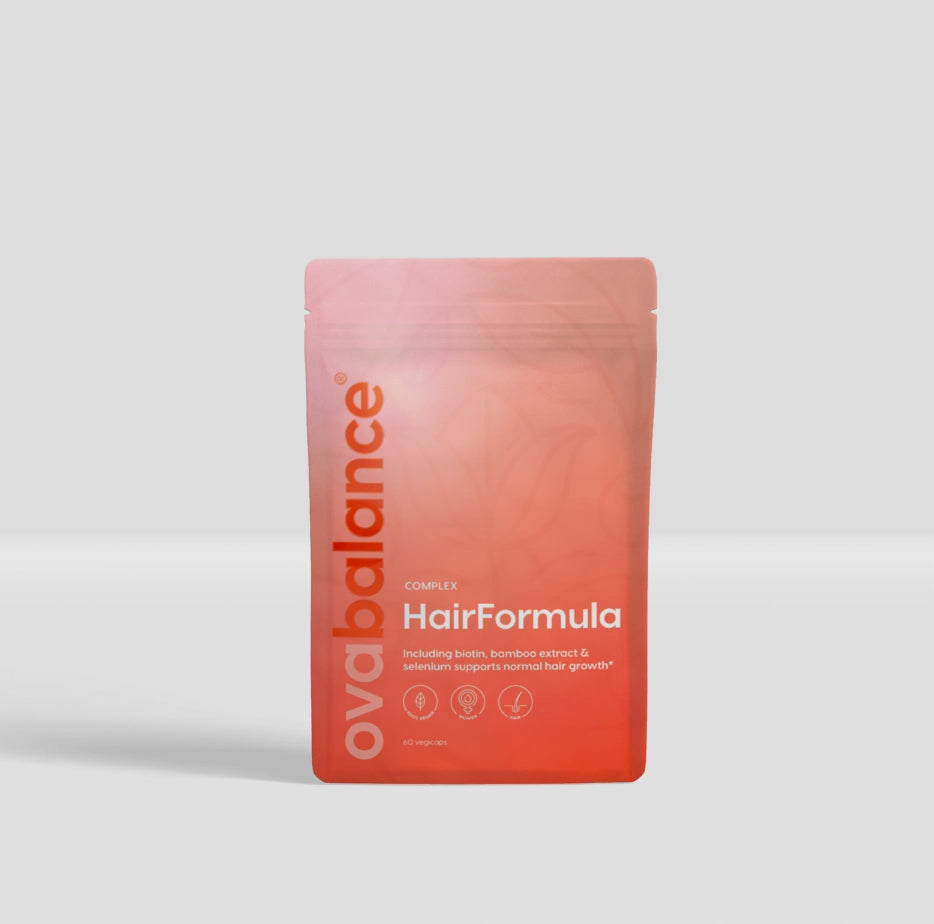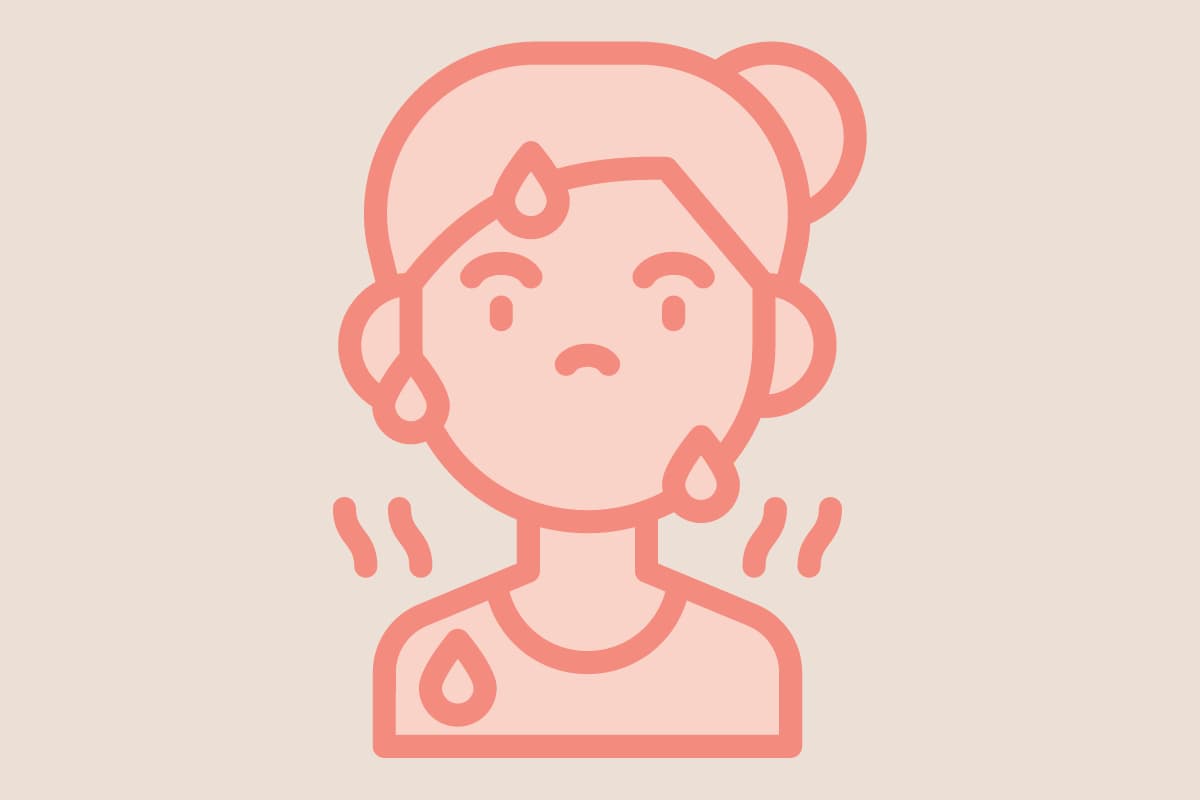
What to do about hot flashes?
An extreme heat washes over your body, as sweat trickles down your forehead. You feel the redness on your cheeks and your heart rate accelerates. What's going on? You're having a hot flash: a sudden wave of heat that many women experience during menopause. What exactly are hot flashes, how do they occur, and what can you do about them? In this article, you'll find all the information you need about hot flashes.
Imagine this: You are in the middle of an important meeting and suddenly the heat rises to your head. You feel the heat spreading through your body. It makes you uncomfortable. You try to concentrate, but you can’t really concentrate anymore. A hot flash has taken over your body, making you sweat, turn red and feel uncomfortable. Hot flashes can strike you both during the day and at night. During the day they are tiring and at night they keep you awake.
What are hot flashes?
Hot flashes are the result of a fluctuation in your internal thermostat. There is an area in your brain that regulates your body temperature. During a hot flash, this system is temporarily confused. Hot flashes mainly occur in women in menopause. It is one of the most common symptoms of this phase of life.
How common are hot flashes?
As many as 75% of menopausal women experience hot flashes[1]. The frequency of hot flashes varies from woman to woman. Some women experience a few hot flashes per month, while others experience several per day.
What causes hot flashes?
Hot flashes are the result of hormonal changes in your body that are part of menopause. During menopause, you gradually produce less and less estrogen: the female sex hormone. This causes your internal thermostat to go a bit haywire. That causes the infamous hot flashes.
Your internal thermostat is out of whack
The part of your brain that is responsible for regulating your internal thermostat is called the hypothalamus. Normally, our bodies regulate body temperature through sweat and blood flow to the skin. But during menopause, this regulatory system can get confused, causing it to think your body temperature is too high and you need to cool down. This sends the wrong signals to your blood vessels and sweat glands. This results in a sudden feeling of heat and sweating: you have a hot flash.
Stress and hot flashes
In addition to hormonal changes, other factors can also trigger hot flashes. Stress is a well-known culprit that can trigger hot flashes. During stressful situations, your body produces hormones, including adrenaline, that increase your heart rate and increase blood flow to your muscles. This in turn can lead to hot flashes. Keeping your stress levels under control is therefore one of the tips to keep hot flashes under control as much as possible. You can read more tips against hot flashes later in this article.
What symptoms are associated with hot flashes?
The most common symptoms of a hot flash are sudden heat, sweating and redness of the skin. Some women also experience palpitations, dizziness or with the hot flashes.
A hot flash usually goes away after 3 to 5 minutes. In some cases, they can last up to half an hour [2]. Some women experience hot flashes sporadically, while others experience them several times a day. The period in which you experience hot flashes, during menopause, can last months to years. But rest assured, one day they will disappear.
The consequences of hot flashes
As a result of the hot flashes you can suffer from irritability and fatigue. Especially when the hot flashes keep you awake at night, they make you tired.
What are other symptoms of menopause?
Other symptoms of menopause include:
- Mood swings;
- Sleep problems;
- Decreased concentration;
- Decreased desire for sex;
- Joint complaints;
- Palpitations;
- Headache .
Read more about menopausal symptoms here >>
Or read all about the different phases of the transition here >>
How can I prevent hot flashes?
Hot flashes are part of menopause and as a woman you have to go through this phase of your life. But there are ways to manage hot flashes a bit better and feel more comfortable during this phase of your life. Adjusting your lifestyle can make a difference.
Tips for and against hot flashes
Here are some tips to help limit the amount of hot flashes you experience and reduce your discomfort when they do strike:
- Eat healthy and avoid foods that trigger hot flashes, such as peppers, sugar, hot drinks (coffee and tea), and alcoholic beverages [3].
- Avoid stress . Limiting stress and ensuring sufficient relaxation will help you with menopausal symptoms. Stress is a known factor that increases menopausal symptoms such as hot flashes. Relaxation exercises, meditation or yoga, for example, will help you reduce stress.
- Wear airy clothing made of natural materials. Breathable clothing is very pleasant if you suffer a lot from hot flashes. Think of wool, bamboo or cotton.
- Wear clothing in layers so you can take off a cardigan or blouse if you suddenly feel warm. Many women like to be able to take something off when they have a hot flash. Of course, this is easier if you wear several thin layers, instead of just a bra with a thick sweater over it.
- Plant estrogens, or phytoestrogens, are plant hormones. Although it has not been scientifically proven, some women say that it helps them with hot flashes. Phytoestrogens are found in various foods, such as soy and legumes. Excessive amounts can cause side effects.
- Check your medication, because some medications can increase the chance of hot flushes. Discuss this with your pharmacist or GP. Never stop taking medication on your own.
- Keep a fan or mini fan in your bag. A fresh breeze on your face can be very pleasant during a hot flash.
Nighttime hot flashes
During menopause, women unfortunately don't just suffer from hot flashes during the day. They often also overtake you at night. We then speak of night sweats or nighttime hot flashes. Some women who suffer from night sweats wake up from the hot flash. Others wake up cold and wet with sweat after having had a nighttime hot flash. Night sweats can really disturb your sleep. Especially if you have to change your nightwear and bedding in the middle of the night because it is completely wet with sweat.
Tips for nighttime hot flashes
There are a number of things you can do to make your nights a little more pleasant if you suffer from night sweats:
- Natural materials for your bedding . As mentioned, it is smart to choose natural materials when it comes to your clothing. The same goes for your bedding. Choose natural fabrics here too.
- Create a cool bedroom and ventilate well. Also make sure you have a well ventilated mattress.
- Don't shower or bathe in water that is too hot before going to bed.
- Avoid coffee, tea, alcohol and spicy foods before going to bed. These can stimulate hot flashes.
- Prepare for the night . Some women keep a wet towel or a cold compress next to their bed. By placing this on the back of your neck, you can cool yourself down if you wake up during the night from a hot flash. Also, put a glass of water on your bedside table so you can quickly drink something.
- A fan in your bedroom can be nice, especially in the summer. Don't point the fan directly at your face, but look for a nice angle in which it blows. Not everyone likes a fan in the bedroom.
Natural help for hot flashes
If you have already adjusted your diet and lifestyle, but would like some extra support, you can consider a supplement. We know, among other things, that the herb black cohosh helps with hot flashes*. OvaBalance has put together a supplement especially for the menopause, which includes black cohosh.
The Ovabalance Menoformula contains the plant extracts black cohosh, Kudzu, Maca and hop extract. The hop extract can help with better sleep* and reduce irritable feelings*, because it has a calming effect. Black cohosh supports your body with night sweats*, mood swings* and hot flashes*.
*Health claim pending European approval
Treatments for hot flashes
Are you suffering from your menopausal symptoms and also a lot of hot flashes? You can discuss with your GP whether treatment is an option for you. These are some examples of the possibilities:
- Some women are prescribed hormone therapy to reduce hot flashes. However, this treatment is not suitable for every woman.
- Another option is traditional acupuncture , which can help reduce the number and intensity of hot flashes.[4]
Psychological help for hot flashes
If you find that hot flashes and menopause are having a negative impact on your mental well-being, don’t be afraid to seek professional help. A therapist can help you deal with any fears, worries or mood swings that come with menopause. It’s important to take your mental health as seriously as your physical health.
For example, cognitive behavioral therapy (CTG) is known to reduce physical symptoms of menopause, such as hot flashes. Your GP can refer you to a psychologist or psychotherapist. CTG also works well for symptoms such as stress, depressive feelings, mood swings, and anxiety and panic symptoms. Symptoms that also occur regularly in women in menopause.
You are not alone
It is good to remember that you are not alone in this phase. Every woman will go through menopause sooner or later. So many women are going through exactly the same thing as you right now. There are several online communities where you can share your experiences with other women in the same situation.
Want to read more about menopause? Here you will find all articles about menopause together.
Sources:
[1] The Association of Nursing Menopause Consultants
[2] Thuisarts.nl
[3] Care for Women
[4] Lund KS, Siersma V, Brodersen J, et al Efficacy of a standardized acupuncture approach for women with bothersome menopausal symptoms: a pragmatic randomized study in primary care (the ACOM study) BMJ Open 2019;9:e023637. doi: 10.1136/bmjopen-2018-023637

